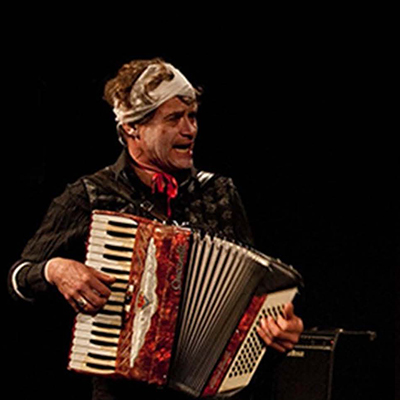Cutting Edge School of Music and Performing Art 2022
The conference was originally scheduled to take place 6-8th of October 2021. Due to uncertainty about Covid-19 outbreaks and restrictions, we have decided to move the date for the Cutting Edge Kulturskole Conference to February 16th – 18th 2022.
Nevertheless, we see that it will be difficult to conduct the conference physically. It has therefore been decided that the entire conference will be arranged online February 16th – 18th 2022. The practice-development conference on day 1 (February 16th) will be arranged as a free webinar. The academic conference on day two and three (February 17th – 18th) costs NOK 460 and requires registration.
The Nordic Network for Music and Art School Related Research and the University of Agder invite to the conference: Cutting Edge School of Music and Performing Art, 2022: ‘The Institution, Art and the Anthropocene’. The conference will be held on 17-18 February 2022. On the day before, 16th February 2022, the Norwegian Council for Schools of Music and Performing Arts invites to a conference for the development of practice.
The institution, art and the Anthropocene
The Nordic Network for Music and Art School Related Research’s intention is to strengthen the cooperation between different subjects, professions- and fields of education and research environments that in various ways impinge on the school of music and performing art. The conference will present research that is both related- and relevant to the school of music and performing art, and which circles three themes. The participants at the conference may choose either to situate themselves within one of the themes or across the three themes. The presentations may reflect either experiences and research/projects from the school of music and performing art sector, or research and artistic and pedagogical development work that could have a practical or thematic transfer value towards the school of music and performing art within the outlined themes.
Power and Institutionalisation
The framework and structures of the school of music and performing art have shaped its activities and contributed both to promoting and restraining different practices. The unique position of the school of music and performing arts, between art and culture, education and experience and national and local plans, generates a multitude of cooperating actors without a strong overriding organisational and legal framework. To operate within such a conglomerate of interests may inspire to think in terms of organisational structures that are less static and hierarchical than those that are adapted to more traditional enterprises and organisations. How could it be possible to imagine organisational models where the dynamic and multifaceted existence of the music and performing art school is transformed into its greatest potential? How can frameworks be developed that give rise to local initiatives, flexible solutions, and occasional artistic cooperation? What is being restrained, and what is being promoted by the existing framework? What are the experiences from related arenas that may have a transfer value when the aim is to highlight different organisational models for the music and performing art school?
Art or culture?
In the curriculum framework, the school of music and performing art’s activities are more often than not presented as ‘art and culture’, as if it was one concept. Will separating the two concepts ‘art’ and ‘culture’ open up new possibilities for the school of music and performing art? Culture is usually defined as the attitudes, values, and norms that we agree on and are educated into. They create an identity and belonging and regulate ways of thinking and acting in a society, a group, or an organisation. Art may be said to have a different and rather opposite mandate: Art challenges culture! The Curriculum Framework for Schools of Music and Performing Arts states that ‘A confrontation with creative art can wrench us out of our habitual modes of thought, challenge our opinions, and provide experiences that spur us to re-examine prevailing conceptions and break with conventional wisdom and customary modes’. If the basis is this kind of view of art, emphasising breach, challenge and innovation (‘think the unthought, see the unseen and say the unsaid’, as is also stated in the Curriculum Framework), the question becomes: Does the school of music and performing art have structures and learning goals that promote education and culture, but not art? Are there examples of projects that can shed new light on this question?
The tasks and responsibilities of the school of music and performing art in the Age of Anthropocene
In 2018, the Arts Council Norway invited to its annual meeting with only one issue on the agenda: What is the significance of art and culture in a world of dramatic changes to the climate and the environment? In UNESCO’s Road Map for Arts, one of the three targets is to: ‘Apply arts education principles and practices to contribute to resolving the social and cultural challenges facing today’s world’. But should the field of art be able to take a stand? Or does it constitute a breach with the autonomy of art to give it a societal role? Can art allow itself to arouse troublesome emotions and unpleasantness, or should it solely be concerned with beauty and hope? Eco-art often means to work with and in nature and to move beyond the classroom; like when the actors anchor their project where the plastic waste is gathering, or in the nature they wish to present or save. The students at schools of music and performing art will, together with their teacher, be able to become fieldworkers who cooperate with researchers and/or a neighbourhood. What is the value of such practices to the music and performing art school? And perhaps particularly interesting: What are the thoughts, ideas and requirements of the children and the youth themselves in the Age of Anthropocene? What would young climate activist as Greta Thunberg, Penelope Lea or Anuna de Wever have done if they were a student at a school of music and performing art? And how do we hope they would be received there?
Keynote speakers
The keynotes at Cutting Edge Kulturskole will consist of lectures with practice elements.

Kai Bredholt (DK)
from Nordisk Teaterlaboratorium - Odin Teatret.

Oskar Löfkvist (SE)
from the new circus group Cirkus Cirkör.
Program
The program is divided into two sections. The first day is dedicated to the Oskar Löfkvist organized by The Norwegian Council for Schools of Music and Performing Arts. Days two and three are set aside for the research conference. The entire event will be held online.
Please note that the practice-development conference on day 1 will only be presented in Norwegian. On days 2 and 3, several presentations will be given in Nordic languages, but arrangements have been made for at least one English-language parallel in the paper sessions.
DAY 1 – Wednesday 16th February 2022. Practice-development conference.
The Norwegian Cultural School Council’s practice-development conference is arranged as a free full-day webinar. The webinar runs from 09:30 to 15:45 on Wednesday February 16th.
DAY 2 AND 3 – Thursday 17th and Friday 18th of February 2022.
Cutting Edge Cultural School 2022.
The conference Cutting Edge Cultural School is arranged by the University of Agder and runs over two days 17th – 18th of February. The whole event will take place via Zoom. Registered participants will be sent a zoom link to the event.
The program was last updated on February 11th 2022.
Registration
The entire conference will be digital. The practice-development conference on day 1 (February 16th) will be arranged as a free webinar. The academic conference on day two and three (February 17th – 18th) costs NOK 460 and requires registration.
Please note that the practice-development conference on day 1 will only be presented only in Norwegian.
The academic conference requires registration, regardless of whether you participate with paper or not.
New postponed deadline for registration: 15th February 2022.
Significant dates
April 11th 2021: Deadline for submitting abstracts
June 2021: Feedback from the program committee on abstract
January 3rd 2022: Deadline for submitting revised abstracts (applies to everyone who has submitted abstract)
January 10th 2022: Deadline for submitting full paper text (or other extended material) for prepared response (optional)
February 15th 2022: Deadline for registration
February 16th 2022: Norwegian Council for Schools of Music and Performing Arts practice-development conference
February 17th and 18th 2022: Cutting Edge Kulturskole 2021 conference
Call for abstracts (closed)
You are welcome to participate with a presentation at the conference. The new postponed deadline for submitting your abstract is April 11th 2021.
You may submit an abstract in one the following presentation formats:
- Paper. Paper (20 min. presentation, 10 min. response/discussion). This includes traditional academic papers as well as artistic, performative papers. Each paper can, upon request, have a prepared respondent.
- Performance lecture and Artistic contribution (20 min. presentation, 10 min. response/discussion)
- Poster. Posters can be put up on the pre-conference on 6th October, but time will be allocated to them in the programme on the 7th and 8th.
- Practice presentations (20 min. presentation, 10 min. response/discussion) Intended for the pre-seminar on 6th October or the main conference on the 7th and 8th.
Abstract (summary of what you want to present, 200-400 words, Scandinavian or English) is submitted via a separate digital form.

